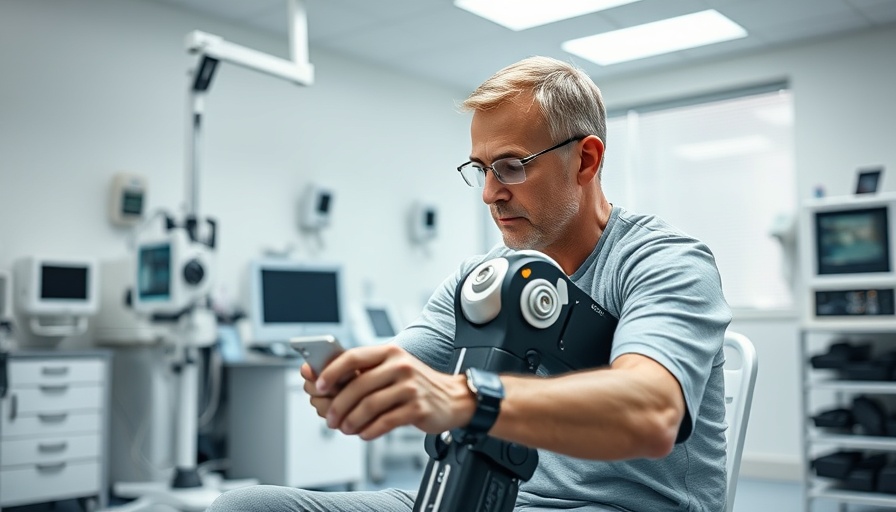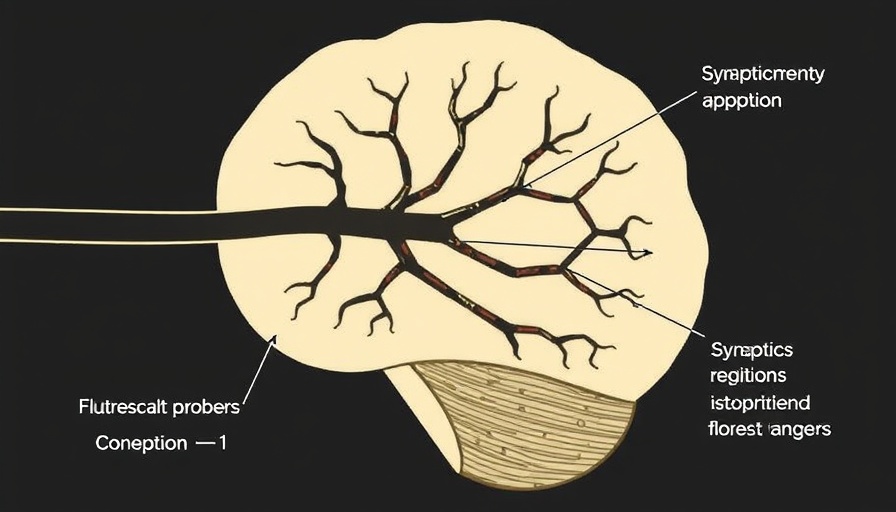
A Leap Forward in Mobility: The Impact of Bionic Knee Technology
Amputees have long faced significant challenges when it comes to mobility, often relying on traditional prosthetics that can hinder movement and comfort. However, a new generation of bionic knee systems is set to revolutionize how these individuals navigate their daily lives. Designed with advanced technology, these bionic knees not only allow for enhanced movement but also offer users an unprecedented level of autonomy and confidence.
Understanding Bionic Knee Technology
Bionic knees incorporate sensors that adapt to the user's walking patterns, providing a custom-tailored experience that mimics natural movement. This technology, which employs sophisticated algorithms, allows the device to respond to varied terrains and walking speeds. For health practitioners, understanding these advancements means better guidance for patients seeking the most effective solutions for their mobility needs.
The Emotional and Psychological Benefits
It's essential not to overlook the emotional and psychological impacts of improved mobility. For many amputees, regaining the ability to participate in everyday activities can significantly boost self-esteem and reduce feelings of isolation. Health practitioners can play a crucial role in encouraging patients to explore these options, as the benefits extend beyond physical improvements.
Current Research and Development
Recent studies have highlighted the growing efficacy of bionic knee systems. Research indicates that users experience a notable increase in mobility, with many reporting less fatigue and discomfort. Additionally, advancements in lightweight materials and battery technology continue to enhance the functionality and wearability of these devices. As a health practitioner, staying informed about ongoing research can help facilitate more informed discussions with patients regarding their options and expectations.
Future Predictions for Amputee Mobility
The future of bionic knee technology is promising, with scientists working on integrating artificial intelligence for even greater adaptability. As these technologies advance, health practitioners may find themselves at the forefront of patient education regarding the latest and best options available. Anticipating the needs of your patients and understanding these trends will be crucial for effective practice management in the changing landscape of prosthetic technologies.
Practical Tips for Practitioners
To effectively guide patients in considering bionic knees, here are several actionable insights for health practitioners:
- Stay Informed: Regularly update your knowledge on the latest prosthetic technologies to provide patients with informed options.
- Open Dialogues: Encourage discussions with patients about their mobility goals and concerns regarding traditional prosthetics versus bionic innovation.
- Collaborate with Specialists: Work alongside prosthetists and rehabilitation specialists to create comprehensive care plans tailored to individual patient needs.
Conclusion: Empowering Patients Through Knowledge and Technology
The advancements in bionic knee technology represent a significant step forward in health care for amputees, offering improved mobility and quality of life. Health practitioners are encouraged to leverage this information, support their patients, and remain proactive in adapting to technological advancements in the field. By embracing these innovations, you’re not just enhancing patient outcomes but also solidifying your role as a trusted advisor in navigating the evolving health landscape.
For anyone curious to explore the advancements in health technology, particularly bionic prosthetics, consider reaching out to get the latest insights and trends on how you can best serve your patients.
 Add Row
Add Row  Add
Add 






Write A Comment